-
Currently closed
0800 092 4444 - Book an appointment
-
-
Africa
-
Arabia
-
Asia
-
Australasia & Pacific
-
Caribbean
-
Central America
-
Europe
-
Indian Ocean
-
South East Asia
-
North America
- View all destinations
- Holiday type
- Brochures
- Collections
- Articles
- Where to go when
Beach
We’re here to tailor-make a beach holiday that’s right for you
Family
Incredible Family holidays from Kuoni, adventures your family will always remember.
All inclusive
Our hand-picked all-inclusive holidays include, boutique, family & wellness resorts.
Honeymoons
Romantic honeymoon package you’ll remember for the rest of your lives.
City breaks
Our hand-picked luxury city breaks in Europe, Asia, Africa, Middle East and the USA
Adult only
Romantic retreats and group get-togethers on our adults-only holidays
Safari holidays
Let us take you on safari in Africa for the best animal viewing on the planet.
LGBTQ+
Romantic retreats or special occasions on our LGBTQ+ holidays
Multi-centre
Combine different destinations, resorts and tours for a dream multi-centre.
Villas
Enjoy the best of both worlds: a luxurious and out-of-the-way villa holiday at a resort
Spa & wellness
Handpicked spa & wellness retreats, pampering or activity holidays all tailormade by Kuoni
Self drive
Create a tailor-made self-drive itinerary for a trip to immerse yourself in outdoor life.
Rail
Sit back, relax and enjoy the view during one of our luxurious train journeys
Beach & beyond
Mix seaside bliss with a side of adventure
Bucket-list trips
Tick off those trips you've always dreamt of
Experience everything, miss nothing
One stop’s never enough if you want to delve a little deeper into your destination.
Family favourites
Family holiday ideas from all-in stay put all inclusives to full-on safari adventures
Jet Set, Ready, Go
The temperatures are on the up, the flowers are blooming, and daylight is winning out. It’s time to start daydreaming of those hazy summer days.
Multi-stop holidays
Take the hassle out of holiday planning with these prepped-and-ready easy adventures.
Reset & Revive
Unplug & play with holidays that take you to places where there’s a focus on the rejuvenation of mind, body and soul.
Seaside breaks
Everything’s taken care and the pressure’s off for the whole crew on an oceanfront escape.
Where to go when in the school holidays
Which is better: Mauritius or Maldives?
Explore Jamaica: our top multi-centre combos
The best things to do in Borneo
Secrets to planning the ultimate Californian road trip
Turquoise dreams: A guide to the Indian Ocean islands
Offbeat gems: The Caribbean's hidden treasures
What to do in Canada: the ultimate bucket list
Speak to one of our experts now about this offer
Call our Africa experts on0800 294 9706
Available until open until 8pm
Dense bushland with ancient Baobab trees, unspoilt Tarangire is dominated by the impressive valley of the Tarangire River.
In Tarangire, thousands of elephants ramble beneath the gnarled branches of 500-year-old baobab trees. Although often overlooked, this remote national park in northern Tanzania has a bounty of wildlife to discover in its woodlands, lakes, grasslands and swamps. Visit in the dry season between July and October and you’ll see tens of thousands of animals in the midst of a mini-migration, drawn to the lifeline of the Tarangire River. While 300-strong prides of elephant bathe in its cool, silvery depths, snorting herds of buffalo graze on the shoreline and elegant gazelles stop to drink, trailed by Africa’s most fearsome predators.
Exciting chase scenes, straight from a David Attenborough documentary, take place at the Silale Swamp, where lions and cheetahs whip through the grasslands in pursuit of zebras and baby wildebeest. Rarer to spot are the shy oryx, giraffe-necked gerenuks and endangered wild dogs who find sanctuary in Tarangire. Wander the park on foot with a Maasai guide to feel the ancient earth beneath your feet, glimpse some of the area’s 500 bird species and learn the secrets of medicinal plants used by this tribe for generations. By night, watch the Maasai perform traditional dance displays around the bonfire as stars sparkle above.
Let our Tanzania team arrange your bespoke Tarangire adventure, complete with stays at secluded safari lodges, national park game drives and Maasai cultural experiences.
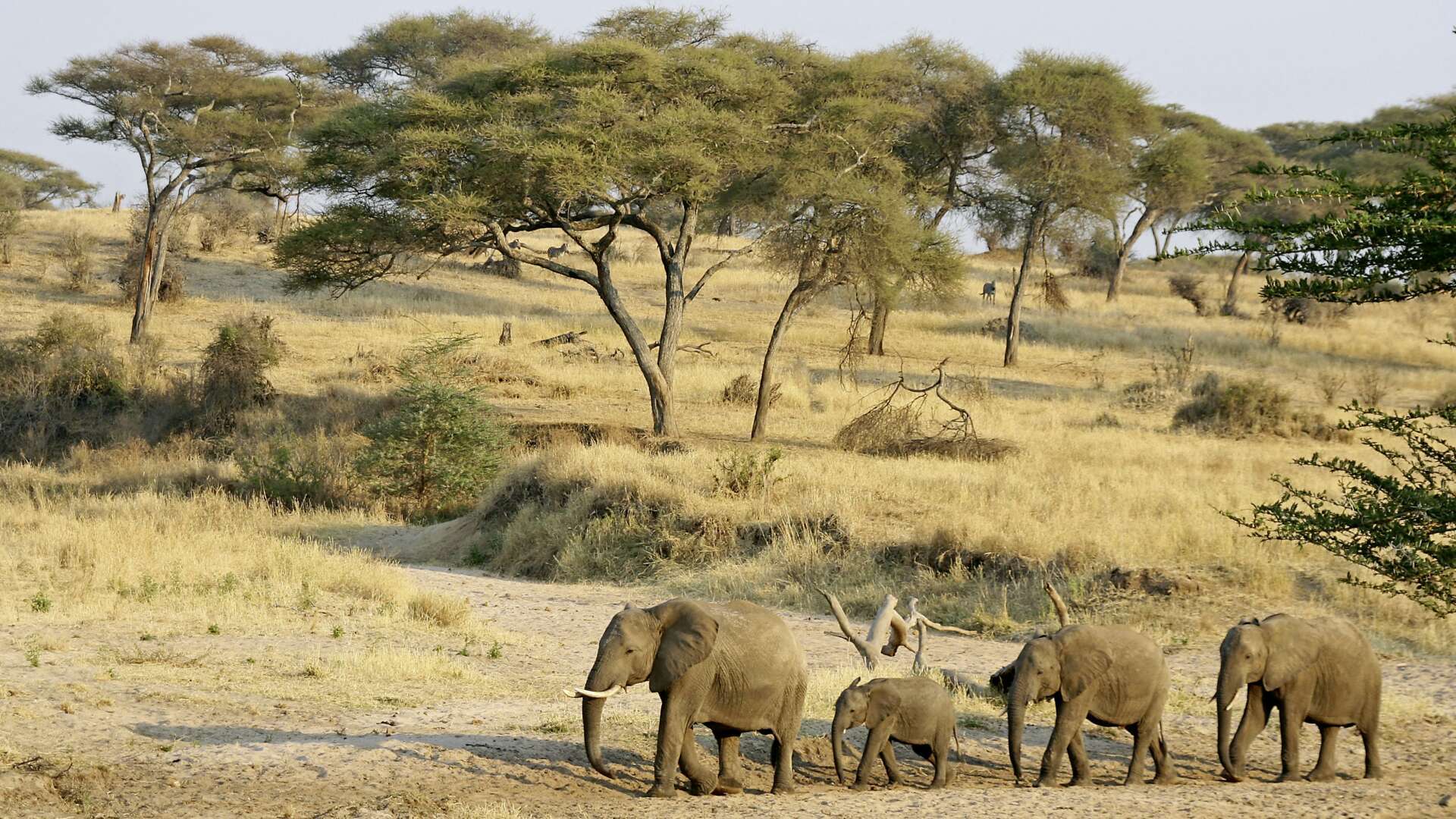
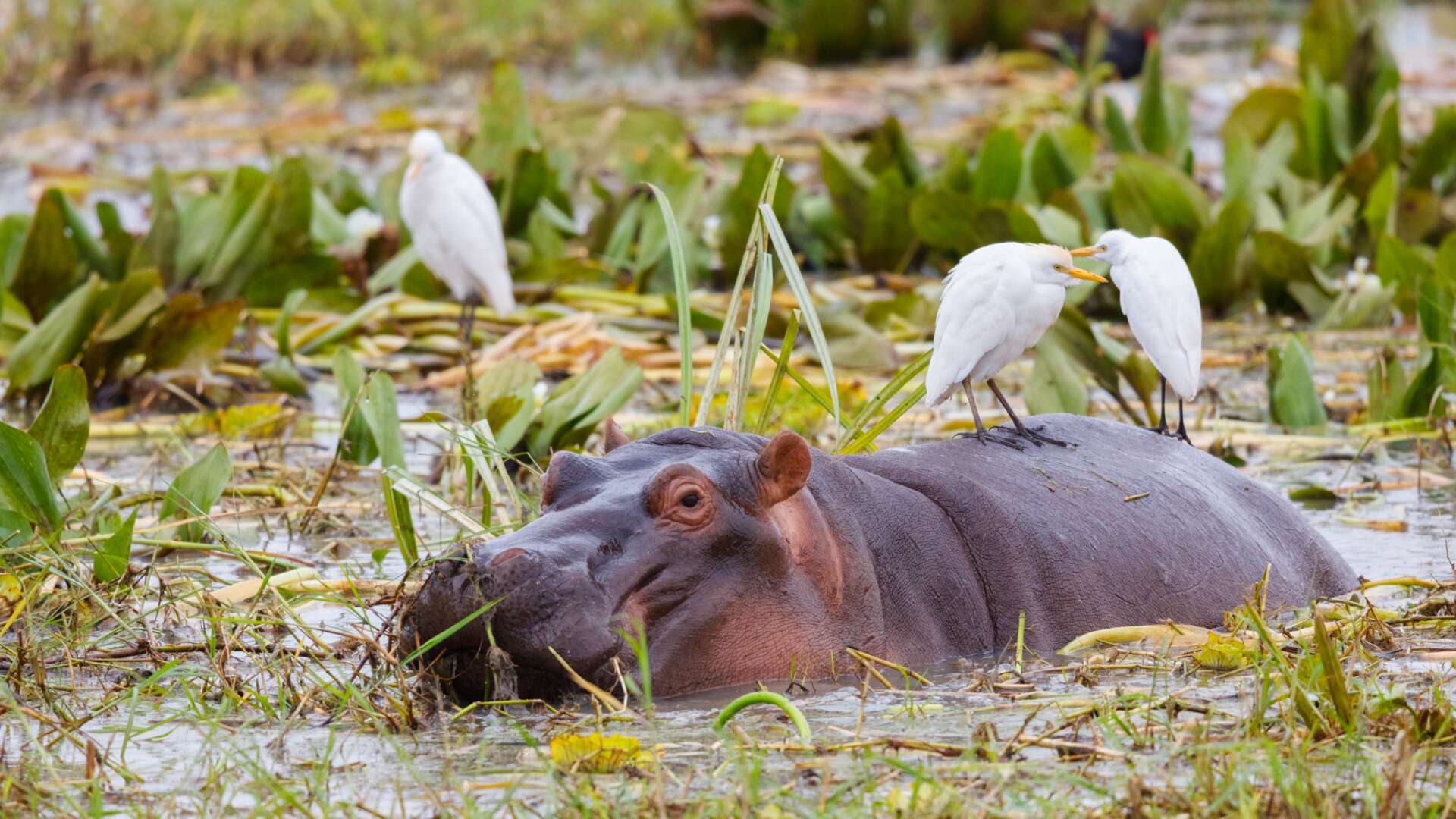
Tarangire Hotels
Our recommendations for the best places to stay in Tarangire
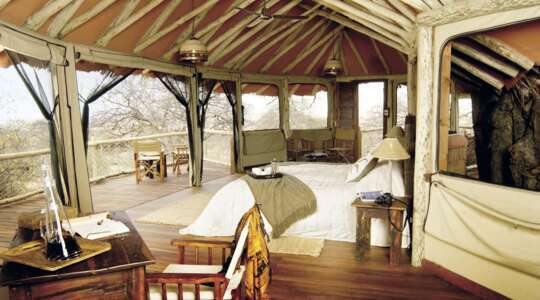
Elewana Tarangire Treetops
This luxury treetop safari lodge is located on the border of Tanzania’s acclaimed Tarangire Natio...
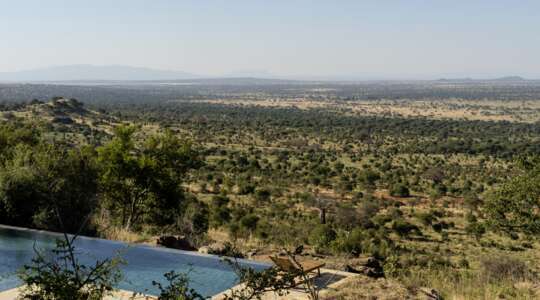
Lemala Mpingo Ridge
Lemala Mpingo Ridge brings new heights of luxury to Tarangire, with 15 super-chic tented suites i...
Holidays in Tarangire
-
-
- Kuoni recommended
- Name (A-Z)
- Rating (High to Low)
- Rating (Low to High)
- Price (High to Low)
- Price (Low to High)
- {{ filter.text }}
- Clear all
Give to local communities while you travel with Lemala
If you want to make a positive impact while you explore Tanzania, just by staying at a Lemala camp or lodge helps to fund many community projects. Lemala has a strong sense of corporate social responsibility, their whole ethos is about giving back and they’re passionate about respecting local cultures and the environment. However, in this part of the world, it’s not about donating a bit of money and hoping for the best – they have to make sure they’re helping in the most efficient way possible.
One of the best ways to uplift communities is by providing employment and training opportunities. Of the 335 staff, only five percent are from outside of Tanzania, the rest are from towns and villages near the camps and they’ve also employed staff from a homeless centre in Arusha. People often arrive unskilled and are trained to work in various roles – the guide training school is very successful. They’ve had long-serving members of the team who started as room attendants or cleaners and have since become safari guides or camp managers.
They also run an annual Leadership Academy where they invite speakers such as accountants, businesswomen and guides to talk to young people in their communities. The aim is to inspire kids and give them realistic career options. They are especially keen to champion women in the workplace and six out of seven members of the management team are women. They now have two fully-qualified female guides including Tanzania’s first, Mary Milanzi, who now leads tuk-tuk tours in her hometown of Mto wa Mbu.
Your stay funds a number of other projects including a women’s shelter called Pippi’s House and a reusable sanitary pad scheme where they provide pads for girls in need. This scheme has expanded and they now work with a woman to educate about sexual health.
Eco-awareness is very important to them too. All Lemala tented camps operate 100 percent off-grid and are completely sustainable. They’ve invested a lot of money in solar power systems and reverse osmosis water treatment plants, which provide safe drinking water for guests and surrounding communities. When they build a new camp, they use recycled steel where possible and decking that has been made from recycled plastic bottles. In just one year they saved around 300,000 plastic bottles from going to landfill. They also work with a scheme that employs local women to make biodegradable banana boxes for guests’ packed lunches.
You can also be sure that when you stay with Lemala, the cultural excursions they offer are ethical. For instance, they run private, authentic visits to Olasiti Village in Tarangire, where they have an extremely close relationship with Chief Lobulo. In exchange, they support the chief’s passion for education, helping to fund his school programmes. Guests can even donate a school desk and chairs made from recycled plastic for $135. When you visit the boma, you can buy hand-made curios straight from women. In a country where you can feed someone for less than a dollar a day, your $5 makes a big difference.
Sundowners at Tarangire Treetops
At Tarangire Treetops, there is a special sundowner spot called Sunset Hill, where you can enjoy a chilled drink while watching the sky transform with dramatic shades of orange and pink. After a day of exploring nearby Tarangire National Park, which is home to some of the largest elephant herds on the continent, there’s nothing better than taking a moment to sit back, relax and enjoy the iconic African sunset.
The viewpoint lies just ten minutes from Tarangire Treetops and is surrounded by ancient baobab and marula trees. When you arrive at Sunset Hill, the team will serve you with a variety of drinks and snacks while you settle in to savour the view. You might spot herds of antelope crossing the plains or parades of elephants in the distance as dusk falls and the sky gets ready to welcome a tapestry of stars.
Nocturnal wildlife encounters at Tarangire National Park
There’s always some wildlife drama unfolding in Tarangire, Tanzania’s sixth-largest national park. The landscape is a mix of woodland, lakes and swamps and is covered in striking baobab trees. On night drives you get to see nocturnal animals like civets and serval cats, white-tail mongoose, leopards hunting and hyenas roaming around for food.
On night drives you get to see nocturnal animals like civets and serval cats, white-tail mongoose, leopards hunting and hyenas roaming around for food. You will have an early dinner before you leave camp around 7.30-8pm for the night drive, arriving back around 10pm. You’re accompanied by a park ranger for safety purposes and a Maasai warrior, who’s an expert at spotting animals in the dark.
On a clear night you can see so many constellations, the Milky Way and shooting stars. It's a great time to sit and be silent for a few minutes to take in the African sky, feel the power of nature and listen to the crickets and animal calls. It’s a beautiful experience.
Talk to an expert today
Your dream holiday is just a phone call away
Call us on 0800 294 9706Monday: 10am - 5pm
Tuesday: 10am - 5pm
Wednesday: 10am - 5pm
Thursday: 10am - 5pm
Friday: 10am - 5pm
Saturday: 10am - 2pm
Sunday: Closed
Visit your local Kuoni store
Find your nearest storeIn-person, virtual or phone
Get face-to-face advice from our friendly team
Email enquiry
Tell us what you’re planning and let our experts help you with your holiday

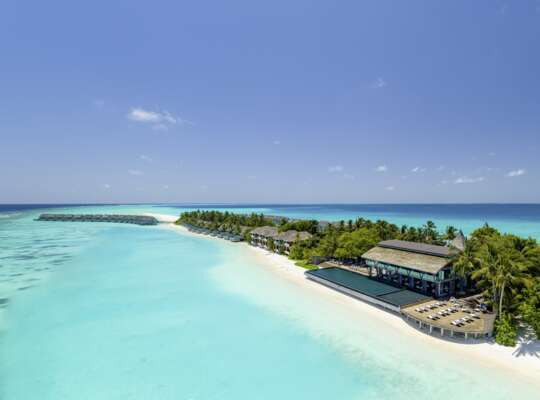
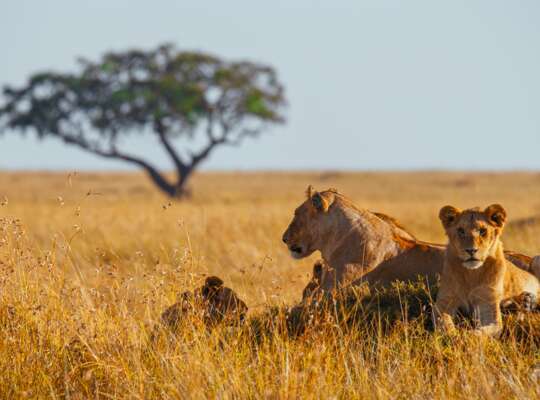
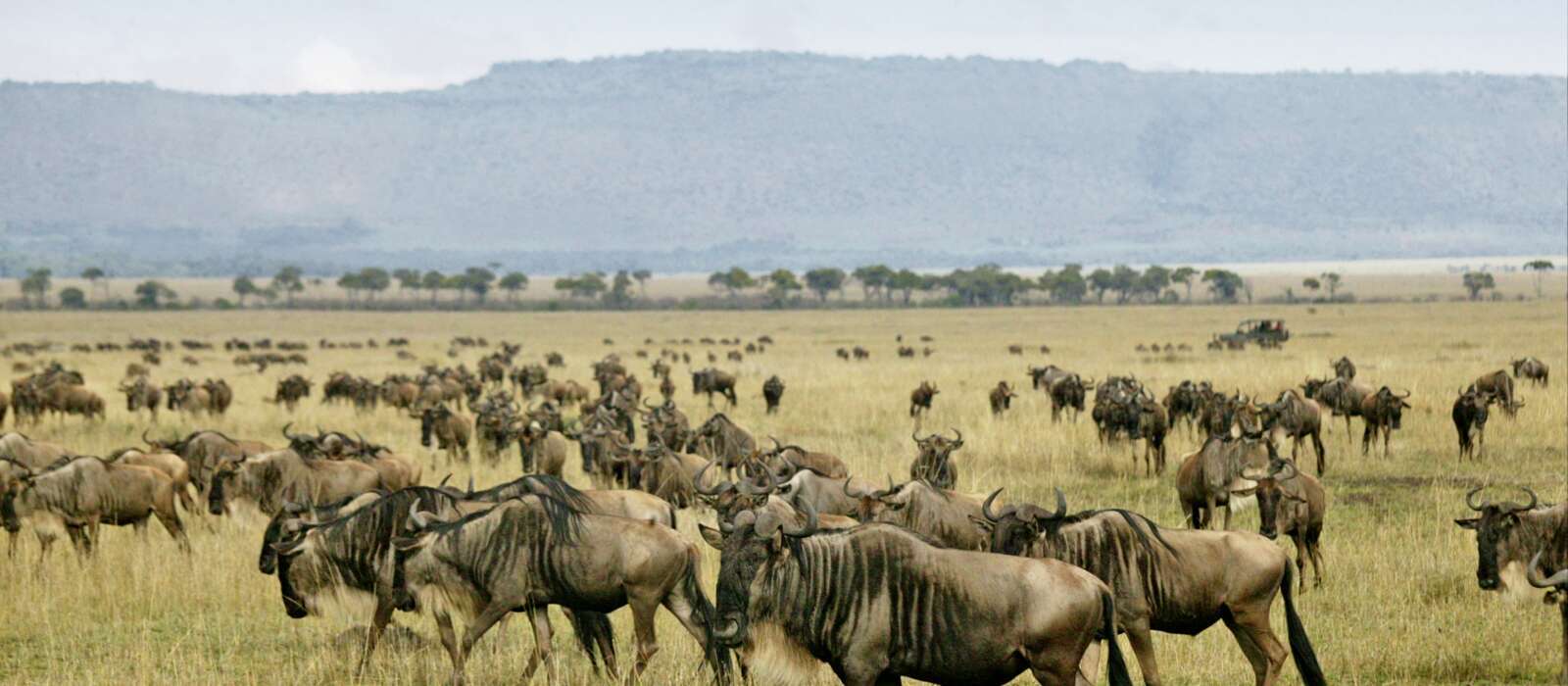
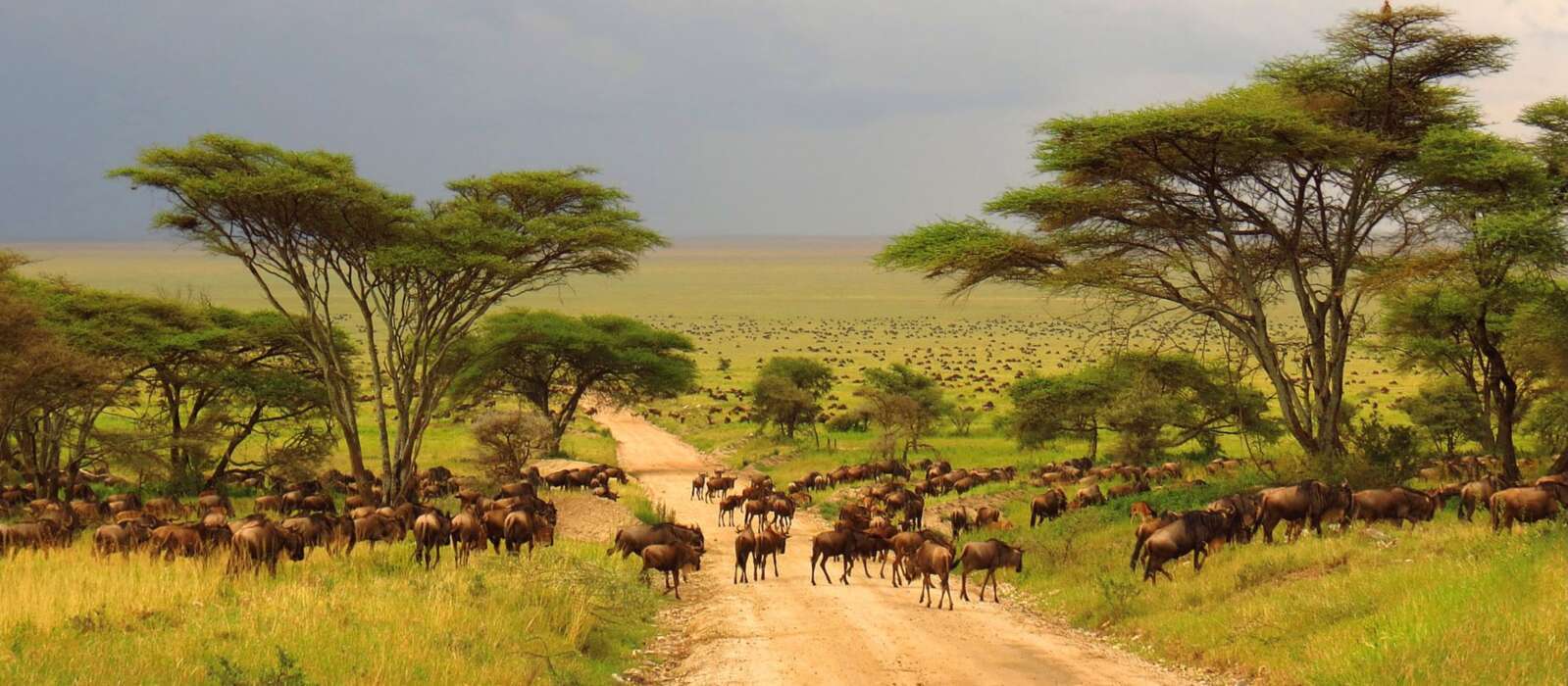
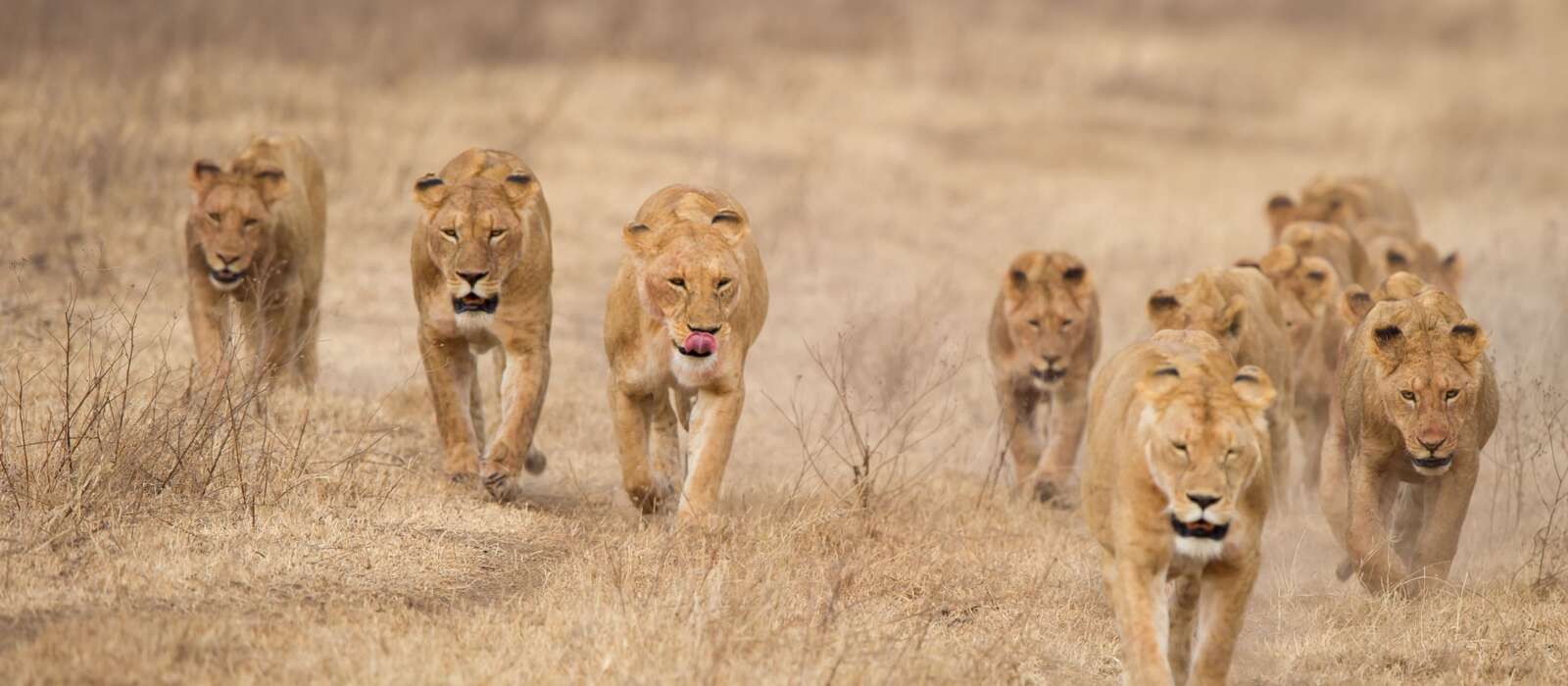
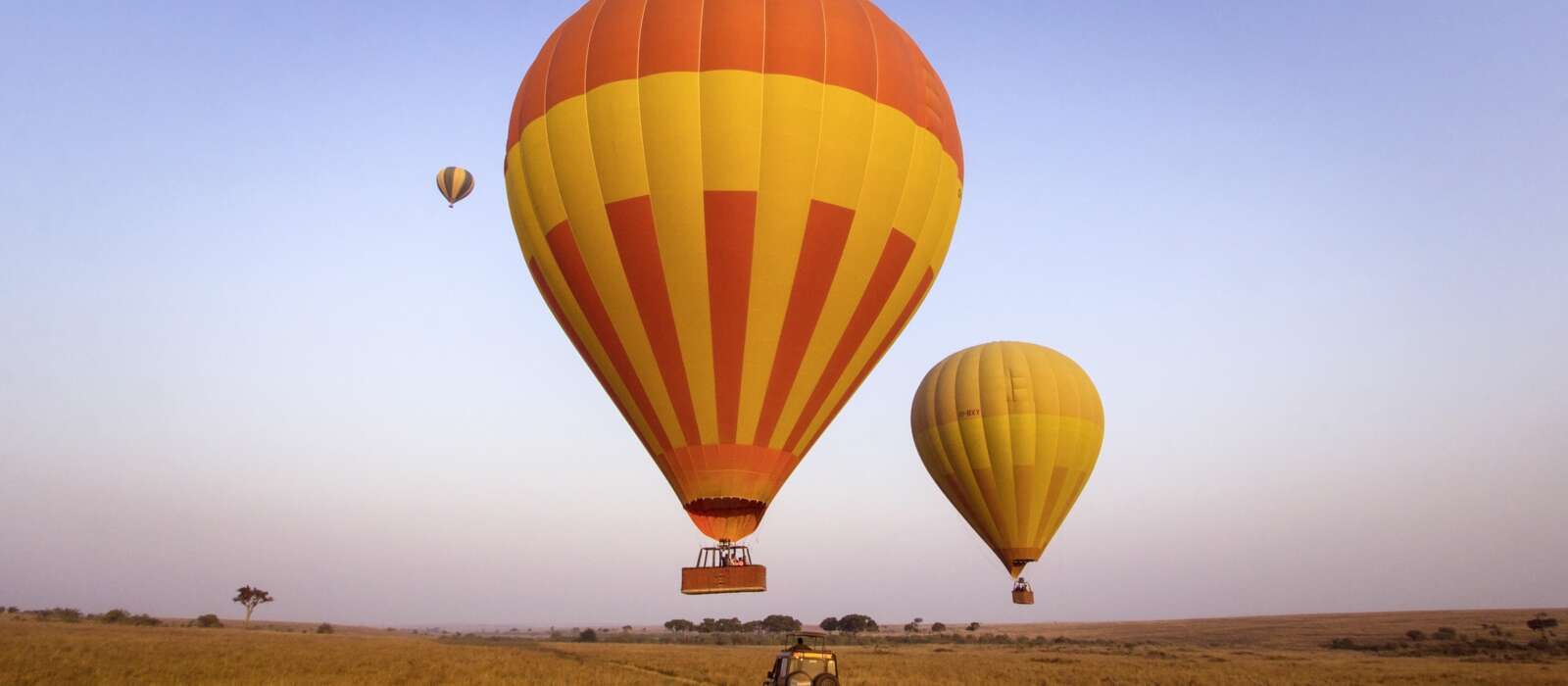

_w=24_h=25.png?v=ad56f7a70274c4124e0a234627efed7161dd8de8)
_w=24_h=25.png?v=ad56f7a70274c4124e0a234627efed7161dd8de8)
_w=24_h=25.png?v=ad56f7a70274c4124e0a234627efed7161dd8de8)